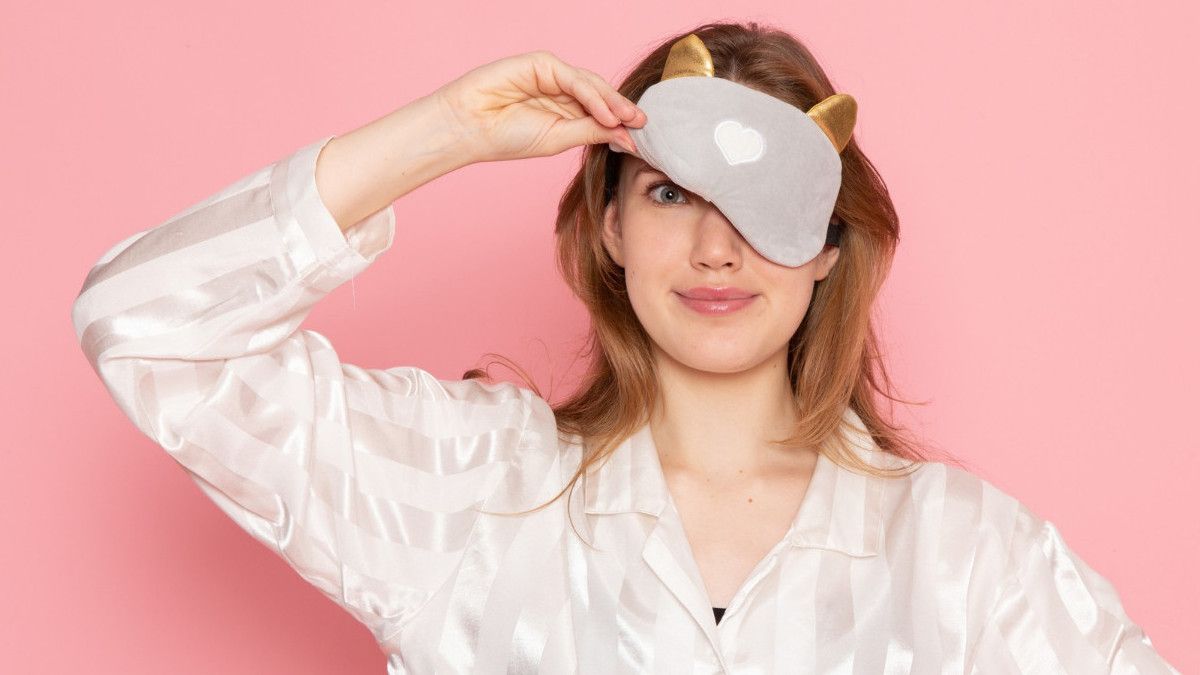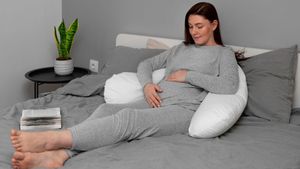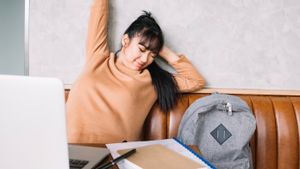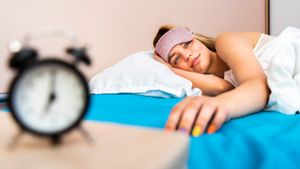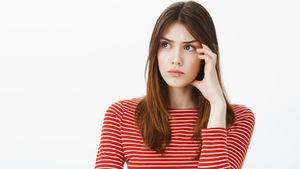YOGYAKARTA The body has a useful internal clock that regulates the rhythm of the sirkadian. This is what determines when we sleep or are awake. This rhythm follows the movement of the sun, when it is bright, we are awake and active. Meanwhile, at night, it is time for the body to sleep. The problem is, everyone's sleep is not as recommended. Often sleeping late or experiencing insomnia until late sleep or called hypersomnia. Well, for knowledge that refers to research, sleep is influenced by light.
Exposure to light at night, affects a natural process that helps prepare the body for sleep. In particular, the penalty gland produces melatonin in response to darkness. These hormones are important in regulating sleep circdians. If you sleep with brighter light, melatonin production will be suppressed and sleep patterns change.
According to the survey, sleep time is shorter for people whose bedrooms have side lights. Even light from outside the bedroom also affects the lack of sleep. That means that exposure to light at night, is not in harmony with the rhythm of the circadier. That's why scientists believe working at night shifts makes people at higher risk of having serious health problems.
Researchers from the University of Cardiff in the UK conducted experiments in a series of their studies. They want to see what the effect will be if participants wear a sleep cover at night. Is the effect positive, in particular, can increase the size of certain learning or vigilance? This study involved 90 young healthy adults aged 18-35 years. They alternately sleep using eye coverings or are exposed to light at night. Researchers note the participant's sleep patterns in a sleep daily book.
Research in the first part, participants are asked to wear eye coverings while sleeping instead for a week. The following week, they wore eye coverings with holes so they didn't block the light. After carrying out each part, participants are asked to complete three cognitive tasks on the sixth and seventh days every week.
SEE ALSO:
The test in the first part, is the learning task of associations. This helps show how effectively one can study new associations. Here, the task of studying pairs of related words. Participants perform better after putting on a complete eye covering while sleeping than after being exposed to light during sleep. The second test tests psychomotoric alertness which assesses alertness. Sleep with an eye covering that blocks light, increasing the reaction time on this task. A third test, participants are asked to sort the five digits in the correct order. For the results of this task, there is no difference from the two trials either using a closed eye or a broadening cover.
According to sleep daily book data, there is no difference in the number of sleeps, nor in their perception of sleep quality, regardless of whether people wear eye coverings or not. Changes in the sleep structure also do not occur. Like about how long REM sleep is when wearing eye coverings or not, there is no difference. However, according to Harvard Health, Friday, September 6, it is recommended to reduce exposure to light from cell phones or other electronic devices. Or use dim mode. As well as try to make room lighting fainter while sleeping. This will help you sleep more comfortably.
The English, Chinese, Japanese, Arabic, and French versions are automatically generated by the AI. So there may still be inaccuracies in translating, please always see Indonesian as our main language. (system supported by DigitalSiber.id)
